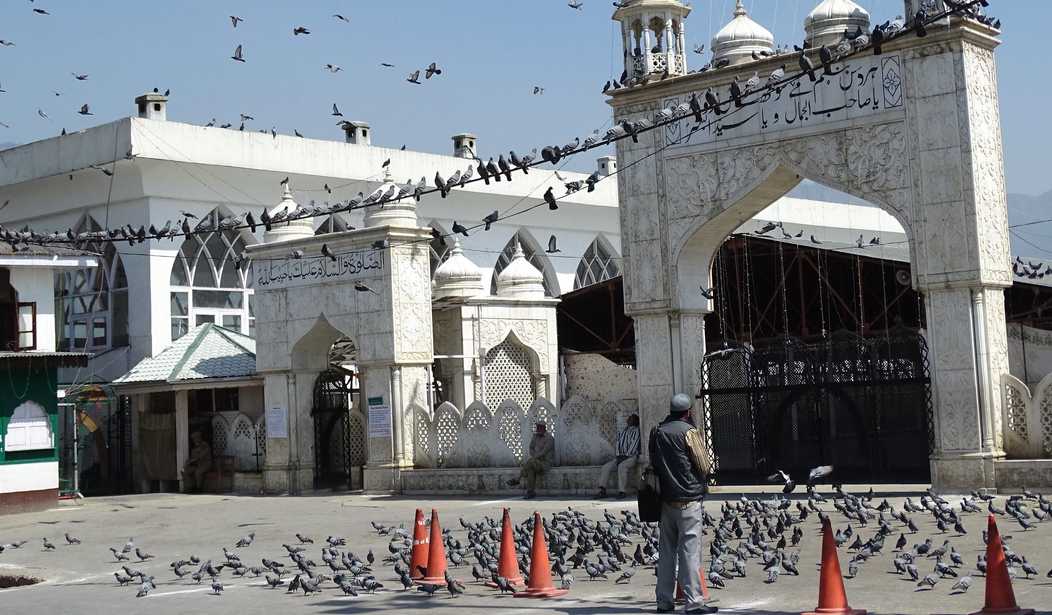On August 5, India revoked Article 370 of its constitution. This article had been in place for decades, and granted special status to Jammu and Kashmir within the Indian union. India’s Parliament then passed the Jammu and Kashmir Reorganisation Act, dissolving the state and reorganizing it into separate territories: Jammu and Kashmir in the west and Ladakh in the east. Pakistan has responded with threats and a global campaign at the United Nations and in the media against Indian’s internal action. Why has Pakistan reacted so intensely to Indian’s parliamentary change to Jammu and Kashmir’s status? It rests on a tripod of reasons.
The first of these is human rights, amplified by charged rhetoric about an “occupied territory.” Pakistan’s shrill reaction may make it seem like this is a new issue, but the fact is the argument is an old one. Pakistan has deployed it since the winter of 1947, when the detection of its troops invading Kashmir led India to approach the UN Security Council. Until that fiction fell apart, Pakistan insisted that it had nothing to do with the fighting in Kashmir. Pakistan insisted it was an internal Kashmir revolt against human rights abuses. Similarly in August 1965, during a well-orchestrated plan to flood Jammu and Kashmir (J&K) with military infiltrators, Pakistan continued to maintain that what was happening was an internal insurrection in Kashmir. In 1999 in Kargil in Jammu and Kashmir, Pakistan propagated a similar fiction along with high-decibel diplomacy. In fact, the Pakistani military had infiltrated deep into India.
These historical parallels are worth noting because they show how deeply public opinion in Pakistan has internalized a narrative of Indian oppression. The Pakistani state also goes to considerable lengths to disguise and deny its own involvement in J&K — especially to its own citizens. To this day Pakistan depicts the 1965 India-Pakistan war as “Defense of Pakistan,” when in fact a large and well-planned Pakistan army infiltration caused the war. Pakistan similarly denies its armed intrusion into Kargil in 1999. It does not even acknowledge Pakistani soldiers killed in the conflict that followed.
The Pakistani stance on India’s preventive measures in J&K does not ring true. But its intensity can be understood by setting it alongside Pakistan’s domestic politics – a former president in exile, and another in jail along with the last two prime ministers.
The second leg of the tripod gets closer to the issue’s substance. Pakistan’s government and media have attacked ending J&K’s “special status” as a decisive change and a unilateral measure by India to “annex” Kashmir. This stand is perplexing because Pakistan had never recognized the validity of any of the Indian constitutional provisions regarding J&K. Why should it now be so exercised over a measure to remove a legal provision when, both by words and deeds, it never accepted it before? Pakistan went to great lengths to avoid any dealings with past J&K governments, political leaders, and official and public representatives. Its focus throughout was to create violence and instability, using religious extremists and terrorists as instruments of policy. Pakistan’s own record of using exile, execution, and assassination to deal with dissent makes a critique of its position much more than whatabout-ism.
The administrative and security restrictions currently in place in J&K are an obvious departure from the norm in India. In the government’s view, they are necessary to prevent loss of life that would follow terrorists and insurgents exploiting the current uncertain situation, and lifting the alienation which some of our citizens in J&K currently feel. Even so, many in India have strongly criticized these measures on the grounds that such restrictions are incompatible with the fundamental rights and freedom of expression enshrined in the constitution. Such criticism is normal in a functioning democracy.
In the end, such arguments and debates will be settled by the judiciary and by the government reinforcing its compact with civil society. What is noteworthy, however, is the perception of even informed opinion in Pakistan, which tries to use this domestic debate in India to substantiate wild and exaggerated claims. This behavior is predictable, but the point surely also is the complicity of silence that has accompanied the Pakistan army’s operations in Balochistan, Khyber Pakhtunkhwa, the Tribal Areas and elsewhere.
The third leg in the Pakistani argument’s tripod is that Jammu and Kashmir have been specifically targeted because it is a Muslim-majority area. This particular argument, frequently aired in the Pakistani media, is bizarre because at no stage in the past seven decades has Pakistan ever acknowledged India’s diversity or its secular credentials. Pakistan has berated every Indian government since 1947 for being “anti-Muslim,” and has consistently dismissed Indian secularism as a sham. It is, in fact, this element of the Pakistani strategy that is key to understanding its opposition to India’s religious diversity and pluralism. Jammu and Kashmir’s Muslim majority has to be seen in an all-India context. In terms of absolute size of the Muslim population, J&K would not even fall among the top five states of the Union of India. The Muslim population of J&K comprises only about five percent of the total Muslim population of India. That there are almost as many Muslims in India as there are in Pakistan debunks Pakistan’s argument. India’s diversity protects its pluralistic culture as strongly as does its constitution.
T.C.A. Raghavan is a former Indian diplomat and current director-general of the Indian Council of World Affairs in New Delhi.









Join the conversation as a VIP Member